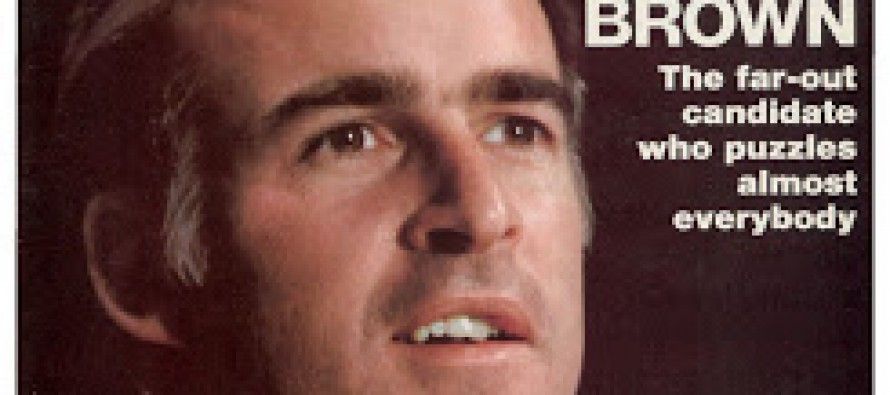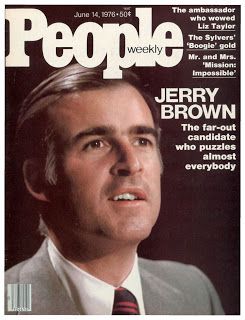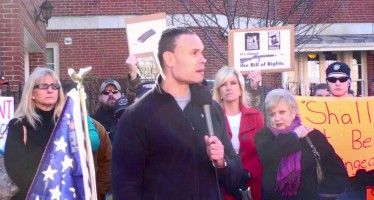Why did Brown take high road and pass on fixing GOP race?

 In the summer of 2001, Gov. Gray Davis was in trouble for a trillion reasons, only starting with his feckless response to the winter 2000-01 rolling blackouts and energy crisis. He was facing a formidable 2002 re-election challenge from Los Angeles Mayor Richard Riordan, a wealthy, moderate, highly successful GOP businessman with a lot of Democratic friends. To the rescue came Bill Clinton, who told Davis that he should use his well-funded campaign apparatus to air TV ads attacking Riordan from the right over Riordan’s insufficient orthodoxy on social issues, starting with abortion.
In the summer of 2001, Gov. Gray Davis was in trouble for a trillion reasons, only starting with his feckless response to the winter 2000-01 rolling blackouts and energy crisis. He was facing a formidable 2002 re-election challenge from Los Angeles Mayor Richard Riordan, a wealthy, moderate, highly successful GOP businessman with a lot of Democratic friends. To the rescue came Bill Clinton, who told Davis that he should use his well-funded campaign apparatus to air TV ads attacking Riordan from the right over Riordan’s insufficient orthodoxy on social issues, starting with abortion.
It worked, and Davis ended up edging out hopeless GOP hopeful Bill Simon — a bland, cookie-cutter social conservative — in 2002.
Jerry Brown was hardly in the same sad shape as his former chief of staff earlier this year. But he could’ve acted in similarly tricky and mendacious fashion, had he wanted. Carla Marinucci of the San Francisco Chronice was the first to make this point:
“It may be one of the biggest mysteries of the June 2014 primary: why didn’t the California Democratic Party weigh in with money and resources — and ‘pick’ the Republican candidate to go up against Democratic Gov. Jerry Brown in the fall?
“Especially since the choice of Tea Party favorite Assemblyman Tim Donnelly, strategists in both parties predicted, would have helped Democrats, and haunted the GOP and its candidates until November. And since the more moderate former Treasury official Neel Kashkari has the potential to appeal to more independents and crossover voters in November, while possibly helping to lift downticket candidates.
“’The California Democratic Party is sitting on a lot of money,’ and Brown has amassed a $20 million war chest, notes Mike Madrid, the co-director of the USC/Los Angeles Times poll and a longtime California politics watcher.
“’For a very small amount, the party could have launched attacks on moderate Republican Neel Kashkari, and ‘assured that Tim Donnelly was the GOP nominee.'”
Two theories on why the gov took the high road
The gov is no dummy. So here are two theories about why he didn’t pursue this monkey-wrenching:
1) He didn’t think it was honorable. I know this will be laughed off by some, but the Jerry Brown on display for much of the 1990s consistently sounded like a populist idealist who hated coarse politics. If this was in any way genuine, Brown might actually find the idea of manipulating Republican voters to pick his opponent to be distasteful.
2) He didn’t think it would help him, or maybe even California, to have the state GOP be even weaker than it is. It has hardly reached the levels of Bill Clinton, but Brown is a triangulator as well, offering himself as a third point of reference in Sacramento’s political wars between his own free-spending Democrats and allegedly heartless Republicans. He likes the current balance of power.
The possibility that I don’t buy is that the governor didn’t think about manipulating the GOP race. Especially given what Gray Davis did in 2001, it had to have been on his mind.
Related Articles
Assemblywoman Cristina Garcia bucks the ‘inside the beltway’ mentality
Legislators in Sacramento typically fall in line behind party leadership, but freshman Assemblywoman Cristina Garcia, D-Bell Gardens, appears to have
A Name Change!
Anthony Pignataro: One of my jobs around here is to monitor the CalWatchdog Twitter feed (we’re @CalWatchdog, if you’d like
Video: Sacred Gun Rights will not be taken away
March 2, 2013 By John Seiler Last November, former Secret Service Agent Dan Bongino lost a race for U.S. Senate




